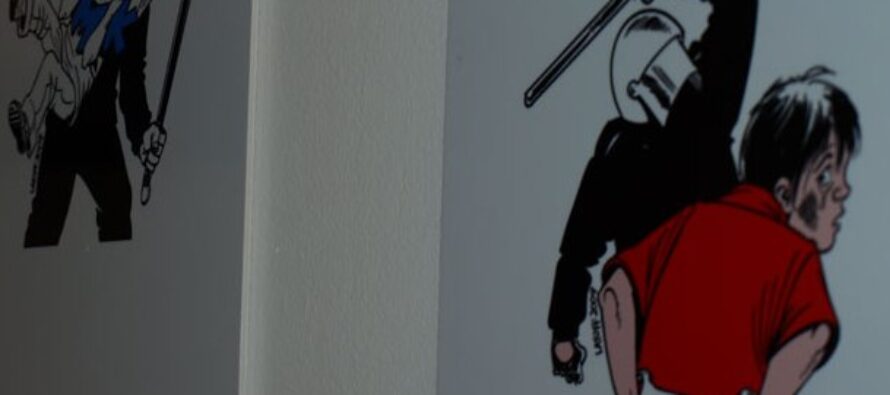When Kurdish children are called ‘liars’ by a State Minister

![]()

Once again abuses in Turkish prison are making headlines. Actually, to be honest, they did not make headlines for many days but then allegations were so serious that even the most reluctant main stream media had to run a story about it. Seven young prisoners, aged between 13 and 17, have denounced they have been sexually and physically abused while in Pozant? prison. Indeed the young boys had exposed the harassment and abuse back in June and the Human Rights Association (IHD) had indeed reported the allegations to the Human Rights Parliamentary Commission. So the news of the abuse was not, strictly speaking, new. Nor was it new the dismissal of such serious allegations by the Turkish authorities.
Probably the government thought (and hoped) allegations would just fade away. An attitude which says it all about the AKP government’s concern with the well-being of its citizens, and in this case with the well-being of its most vulnerable citizens, minors and in prison. But the trauma of the abuse, the scares it left in young bodies and minds is not something you could just throw under the bed and hope it won’t come back to haunt you. And indeed these kids, young teenagers have been haunted all these months by the atrocity and violence they were subjected to. Thanks to the efforts of the Human Rights Association (which, it’s worth remembering, is among the most repression-hit institutions, with the government’s police jailing hundreds of human rights activists and executives in the attempt to silence them) the Pozant? children were not forgotten nor left alone in trying to cope with their trauma. And finally the news did hit the headlines. Which would have meant, for any government, to sit down and seek solutions, after – of course – having provided any necessary psychological assistance to the victims. But no, the Turkish AKP government behaved differently. The first reaction was trying to dismiss the claims as ‘fabrication’. As evidence of the fact that these kids might have been prone to lie, their being Kurds and being arrested while attending demonstrations for freedom and peace (labelled of course by the government as ‘pro-PKK demos). Justice Minister Sadullah Ergin did not hesitate to call the young people ‘liars’. So much for the respect owed by a state minister to his citizens. Somebody must have pointed out to minister Ergin that indeed referring to the boys as ‘liars’ was not quite appropriate and so the minister changed tone and launched an investigation into the allegations. Seven months after the IHD had actually first brought to the authorities attention the gravity of the situation. Three inspectors were sent to the prison in Adana and as a result of the inspection four officials (including the deputy director of the prison) were removed from their post. Also, the minister announced that the 200 prisoners under 18 currently held in Pozant? will be transferred to Sincan prison in Ankara. And with that obviously minister Ergin thinks the matter settled. It would be no understatement to insist on the racist and discriminatory approach by the minister. But it even goes beyond that. The number of under 18 currently held in prison in Turkey is well over 2300. Clearly this figure alone indicates there is a problem. Many of them are held for having taken part to demonstrations (again, pro-peace or pro-PKK according to the way you look at it, but still demonstrations no armed attacks, so much for freedom of expression), funerals of Kurdish guerrillas (often brothers, sisters, relatives), throwing stones to army tanks. The verdict for the state is one and one alone: guilty. No discussion allowed. A generation is forced by the Turkish state to grow in the middle of a war and, if they dare asking for peace, they are immediately labelled and stigmatised as ‘terrorists’. What kind of justice, what kind of state is the one which throw scores of young people in prison for asking for peace and their rights (ultimately the right to live their childhood in peace, in this case) and wished it could throw the key into the river ? Really, did minister Ergin thought the matter was solved by dismissing four prison officials and transferring the kids to another prison (yes from prison to prison: how far-reaching minded) ? Who will make it up to those kids who have suffered the trauma of being raped, sexually abused, insulted, criminalised ? The state cannot simply wash its hands and look away. These kids will ask for the bill one day, and rightly so. Really does minister Ergin think the matter is solved by sending the kids a thousand km away from their families ? One wonders if indeed this is not yet another punishment for daring to expose what is going on in prison. For this is not an “isolated episode” as the government would strongly wish to file it and get it over with. This is one of many such atrocities going on in Turkish prisons. Luckily the IHD is there. The BDP deputies are in the parliament to ensure that light is shed on these brutalities. But above all that justice is made. All children deserve to grow up in a healthy, peaceful and joyful environment. Kurdish children face double difficulties in achieving this. But they should feel they are not alone.
Related Articles
5 Children Arrested for School Boycott Campaign
![]()
BDP District Mayor Demirel and 5 children were arrested in the town of Tutak when they distributed leaflets on the
Italy: Strengthen Legal Protection for LGBT People
![]()
A woman holds a banner in front of the Colosseum during the annual gay pride parade in Rome on June
Northern Ireland’s economy has a lot more to lose from a hard Brexit than the Republic’s
![]()
As the Brexit end game approaches, the intractability of the problems around the Irish border are thrown into sharp relief



